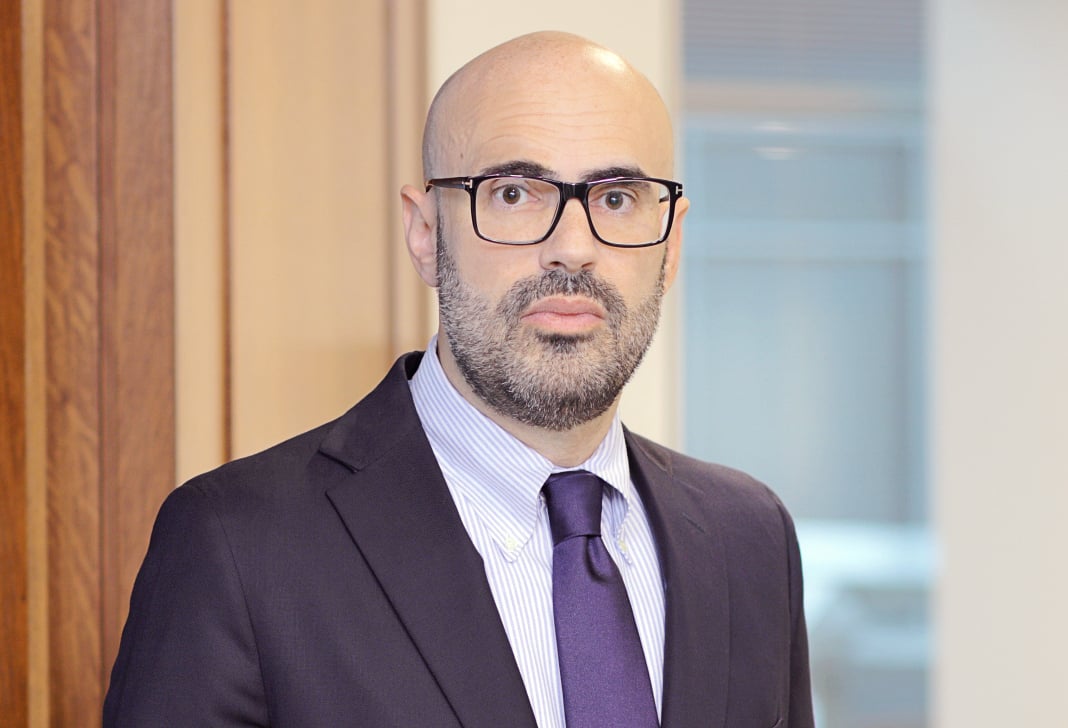
Business Restructuring Review | Vol. 22 No. 1 | January-February 2023
Lawyer Spotlights: Genna Ghaul and Nicholas J. Morin
The Year in Bankruptcy: 2022
A brief chronicle of the year's notable developments in corporate bankruptcy and restructuring, including business bankruptcy filings, significant court rulings and bankruptcy legislation. [read more …]
First Impressions: The Eleventh Circuit Examines 20-Day Administrative Expense Claims and the Subsequent New Value Preference Defense
Because the claims of vendors who provide goods to a debtor during the 20 days before it files for bankruptcy are conferred with administrative expense priority—a designation otherwise almost exclusively limited to claims against a debtor that arise after the bankruptcy petition date—courts sometimes disagree over whether a preference defendant can use the same value to assert such a "20-day claim" and to offset its preference liability under the "subsequent new value" defense. The U.S. Court of Appeals for the Eleventh Circuit recently addressed this question as a matter of first impression in Auriga Polymers Inc. v. PMCM2, LLC, 40 F.4th 1273 (11th Cir. 2022). It held that a preference defendant may use the same value to assert a 20-day claim that it can use to offset its preference liability under the subsequent new value defense. In so ruling, the court determined that only prepetition transfers affect a creditor's subsequent new value defense. [read more …]
Sears Holding: A Case Study in Valuing Collateral in Chapter 11
In ESL Investments Inc. v. Sears Holding Corp. (In re Sears Holding Corp.), 51 F.4th 53 (2d Cir. 2022), the U.S. Court of Appeals for the Second Circuit held that, given the uncertainty surrounding the retail debtors' fate at the time they filed for bankruptcy, the bankruptcy court did not err in valuing inventory collateral at its "net orderly liquidation value," rather than book value, going-out-business sale value or forced liquidation value. The Second Circuit also found no fault with the bankruptcy court's decision to value non-borrowing base inventory at zero and to ascribe full face value to undrawn letters of credit where, among other things, the junior lenders failed to meet their evidentiary burden of suggesting a reasonable alternative. [read more …]
Appeal of Unstayed Order Approving Bankruptcy Sale of Real Property Free and Clear of Lease and Related Settlement Agreement Dismissed as Moot
In In re Royal Street Bistro LLC, 2022 WL 6308294, 21-2285 (E.D. La. Sept. 23, 2022), the U.S. District Court for the Eastern District of Louisiana affirmed bankruptcy court orders approving an auction sale of properties free and clear of a tenant's leasehold interest as well as a related settlement agreement because both appeals were mooted by section 363(m) of the Bankruptcy Code—the sale, by the express terms of section 363(m), and the settlement, because it was an integral part of the sale. The ruling reinforces the principle that property can be sold free and clear of a tenant's leasehold interest, despite protections of such interests elsewhere in the Bankruptcy Code. It is also emblematic of the broad interpretation in the Fifth Circuit of statutory mootness under section 363(m). [read more …]
Fifth Circuit: Bad Faith Does Not Overcome Deferential Business Judgment Standard Applied to Assumption or Rejection of Contracts in Bankruptcy
In In re J.C. Penney Direct Marketing Services, L.L.C., 50 F.4th 532 (5th Cir. 2022), the U.S. Court of Appeals for the Fifth Circuit affirmed lower court rulings approving a chapter 11 debtor's decision, at the behest of the purchaser of its assets, to reject a commercial ground lease, even though an agent retained by the debtor to market its shopping center leases acted in bad faith in negotiations with a sublessee intent upon acquiring the ground lessor's interest. In so ruling, the Fifth Circuit rejected the sublessee's argument that the debtor's decision to reject the lease should not receive deference under the business judgment standard due to the agent's bad faith. According to the Fifth Circuit, in the absence of evidence that the decision to reject did not enhance the bankruptcy estate or was "clearly erroneous, too speculative, or contrary to the Bankruptcy Code," the presumption created by the business judgment rule could not be overcome. Nor, the court noted, did the sublessee demonstrate that the debtor's decision was "so manifestly unreasonable that it could not be based on sound business judgment, but only on bad faith, or whim or caprice." [read more …]
Default Under Assumed Lease Need Not Be Material or Ongoing to Trigger Landlord's Entitlement to Adequate Assurance of Future Performance
In Smart Capital Investments I LLC v. Hawkeye Entertainment LLC (In re Hawkeye Entertainment LLC), 49 F.4th 1232 (9th Cir. 2022), the U.S. Court of Appeals for the Ninth Circuit ruled that, even though a default under an unexpired lease has been remedied prior to assumption or is immaterial, the landlord nonetheless is entitled to "adequate assurance of future performance." The Ninth Circuit concluded that a bankruptcy court erred in ruling otherwise, but that the error was harmless because the defaults either had been cured prior to the debtor's request to assume the lease or were "minor deviations" from the lease terms, and "any adequate assurance responsive to the alleged defaults would be little more than simple promises not to deviate from the contract terms again." [read more …]
Acceleration Enforceable Under State Law Following Non-Monetary Control Covenant Default Prevents Reinstatement of Loan Under Chapter 11 Plan
Chapter 11 debtors commonly use plans of reorganization to deaccelerate defaulted loans and reinstate the obligations according to their original terms as a means of locking in favorable terms in an unfavorable market. In order to do so, the Bankruptcy Code requires that the trustee or chapter 11 debtor-in-possession "cure" any defaults under the loan agreement, other than defaults related to a debtor's financial condition ("ipso facto provisions") or penalties payable due to the debtor's breach of certain non-monetary obligations. The U.S. Bankruptcy Court for the Eastern District of New York addressed the cure obligation incident to reinstatement of a prepetition loan under a plan in In re 975 Walton Bronx LLC, 2022 WL 5265041 (Bankr. E.D.N.Y. Oct. 6, 2022). After finding that acceleration of the loan was not subject to state law equitable exceptions to enforcement, the court ruled that the DIP could not reinstate the loan without curing a default arising from a change in control of the debtor without the lender's consent. [read more …]
Newsworthy
In December 2022, Jones Day was awarded a "Most Recommended" law firm status by BTI Consulting Group for the 20th consecutive year. The honor is based on unprompted responses from in-depth interviews with more than 340 top legal decision makers conducted by BTI Consulting Group for its annual survey, "The Firms Top Legal Decision Makers Recommend Above All Others."
Jones Day received a National Tier 1 Ranking in the fields of Litigation-Bankruptcy and Bankruptcy and Creditor Debtor Rights/Insolvency and Reorganization Law in the 2023 U.S. News—Best Lawyers® "Best Law Firms" list published jointly by U.S. News and World Report and Best Lawyers®.
Corinne Ball (New York) was recognized by Who's Who Legal ("WWL") as a "Global Elite" Thought Leader for 2023. The lawyers designated as Global Elite obtained the highest number of nominations from peers, corporate counsel, and other market sources in WWL's most recent research cycle.
Carl E. Black (Cleveland) has been named a Fellow of The American College of Bankruptcy, an honorary public service association of professionals who are invited to join as Fellows "based on a proven record of the highest standards of expertise, leadership, integrity, professionalism, scholarship, and service to the bankruptcy and insolvency practice and to their communities." He will be formally inducted at the American College of Bankruptcy's Annual Meeting in March 2023 in Washington, D.C.
Juan Ferré (Madrid) was recognized in the 2023 edition of The Best Lawyers in Spain™ in the field of Insolvency and Reorganization Law.
An article written by Corinne Ball (New York), Dan T. Moss (Washington), Michael C. Schneidereit (New York), Isel M. Perez (Miami), and Mark G. Douglas (New York) titled "U.S. Bankruptcy Court Can Enforce Foreign Restructuring Plan Providing for Cancellation of U.S. Law-Governed Debt" was published in Lexis Practical Guidance on November 28, 2022.
An article written by Charles M. Oellermann (Columbus) and Mark G. Douglas (New York) titled "Second Circuit Rules that Bankruptcy Courts May Award Appellate Legal Fees as Sanction for Contempt" was posted on the Harvard Law School Bankruptcy Roundtable on November 29, 2022.
An article written by Corinne Ball (New York) titled "Second Circuit Weighs In on Whether the Bankruptcy Code Requires Payment of Post-Petition Interest on Unsecured Claims" was published in the December 21, 2022 issue of the New York Law Journal.
An article written by Daniel J. Merrett (Atlanta) and Mark G. Douglas (New York) titled "Unimpaired Unsecured Creditors in Solvent-Debtor Chapter 11 Case Entitled to Postpetition Interest, Presumably at Contract or Default Rate" was published in Lexis Practical Guidance on November 28, 2022.
An article written by Oliver S. Zeltner (Cleveland) and Mark G. Douglas (New York) titled "Delaware District Court: Using Contract Rights to Strategic Advantage Not Grounds for Equitable Subordination in Bankruptcy" was published in Lexis Practical Guidance on November 28, 2022.
Lawyers Spotlights: Genna Ghaul and Nicholas Morin
Jones Day welcomed 45 new partners to the Firm in January 2023, including Genna Ghaul and Nicholas ("Nick") J. Morin, both members of the Business Restructuring & Reorganization Practice.
Genna, a former Jones Day summer associate who joined the Firm's New York Office in 2014, represents clients in chapter 11 proceedings, out-of-court restructurings, section 363 sales and other distressed transactions, bankruptcy litigation, and mass tort matters. She has served clients in the retail, energy, automotive, mining, and telecom industries.
Genna currently represents Jefferies Finance LLC, as DIP agent, DIP lender, and stalking horse bidder, in the chapter 11 cases of cosmetics company Forma Brands before the Bankruptcy Court for the District of Delaware. Genna also represents LTL Management, a Johnson & Johnson affiliate, in its chapter 11 case before the Bankruptcy Court for the District of New Jersey. Her past and present debtor representations include SHL Liquidation Industries (f.k.a. Shiloh Industries), Aldrich Pump and Murray Boiler, DBMP, GUE Liquidation Companies (f.k.a. FTD Companies), American Apparel, M&G USA Corporation, Transtar Holding Company, and Nextel (NII Holdings). Past creditor representations include the purchaser of the assets of The Bon-Ton Department Stores, the 1.5 Lien Noteholders of Hexion, and the term loan lenders in rue21 and Seventy Seven Energy's chapter 11 cases.
Prior to joining the Firm, Genna was a law clerk to the Honorable Robert E. Gerber, U.S. Bankruptcy Court, Southern District of New York (2013–2014). According to Genna, "It was when I clerked for Judge Gerber following law school and experienced first-hand the role that bankruptcy plays in our legal system and in restructuring distressed companies that I knew I wanted to pursue a career in bankruptcy law. I was initially drawn to Jones Day as a summer associate to become an antitrust lawyer, but fortunately for me, the Firm also had a preeminent bankruptcy practice that welcomed me with open arms."
Genna maintains an active pro bono practice, representing clients in immigration matters, family court proceedings, and before the Bankruptcy Court for the Eastern District of New York.
Nick, who joined the Firm's New York Office in 2015, has substantial experience in both transactional and litigation legal work, primarily representing financially distressed companies or their lenders.
He has represented numerous creditor groups in various restructurings, including creditors of: Intelsat (represented group of holders of secured and unsecured debt in restructuring of $15 billion of funded debt in two-year chapter 11 case); Syncreon (represented group of secured lenders in restructuring of $1 billion of funded debt in UK scheme proceeding and related chapter 15 case); Sungard AS (represented group of term loan lenders in restructuring of $1.2 billion of funded debt in a two-day chapter 11 case); David's Bridal (represented group of term loan lenders in restructuring of $800 million of funded debt); and Bon-Ton (represented group of second lien noteholders in $125 million credit bid to acquire rights in company's assets).
Nick also has represented many companies in distressed situations, including Peabody Energy (in restructuring more than $8 billion of funded debt through chapter 11 plan); M&G USA Corporation (in the sale of assets for more than $1 billion); and Rex Energy (in the sale of assets for more than $600 million).
In addition, Nick has been involved in high-stakes, insolvency-related litigation, including successfully obtaining the dismissal of fraudulent conveyance claims asserting $450 million in damages.






